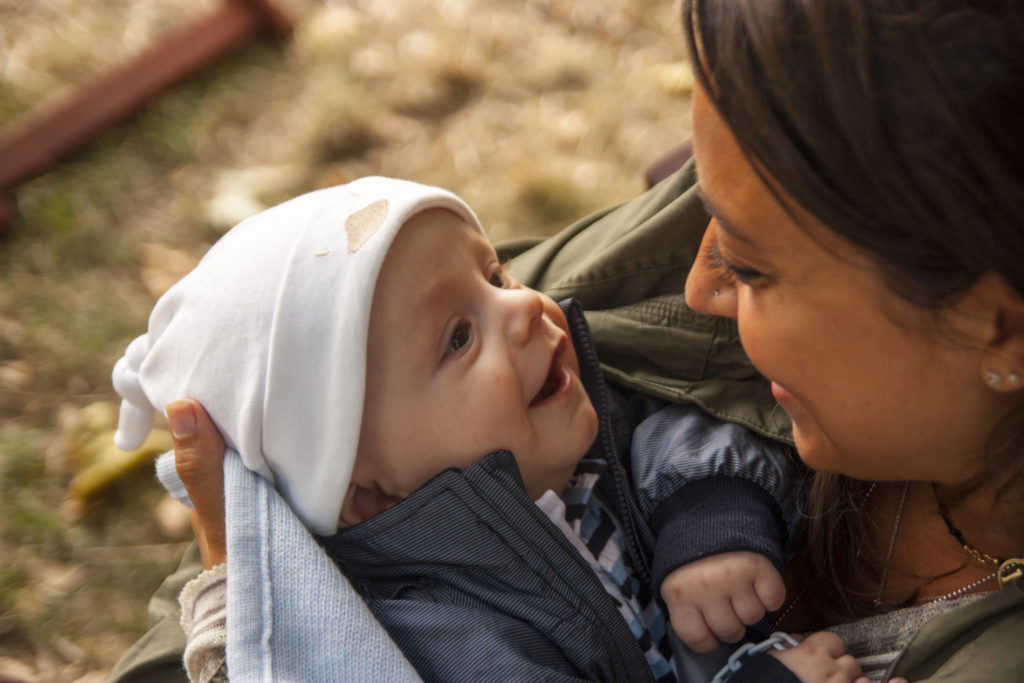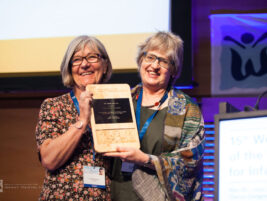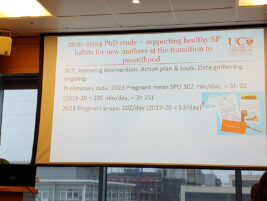For several decades, international bodies have sought intercultural consensus on children’s rights (U.N. General Assembly, Convention on the Rights of the Child 1989), many of which correspond to biological requirements for survival and health. The biological construct has served as a basis for appeals to “universality,” while child development has often been conceptually separated from survival, narrowly construed as dependent on water, food, shelter, and basic healthcare. Yet children’s survival also depends on the fulfillment of basic developmental needs, for example, undisrupted attachments to primary caregivers (Ainsworth 1962; Bowlby 1988a, b ; Bronfenbrenner 2004; Winnicott 1964/1987). When children lose critical attachment figures in the first years of life, they may stop eating and die from starvation and the associated stress can also suppress their immune systems, leading to life threatening infections (Spitz 1945; Soulé et al. 1995).
The continuity of children’s early attachments depends on the health and wellbeing of their caregivers. In order to survive, grow, and thrive, children need caregivers whose own survival, development, and ability to nurture their young are not endangered. Developmentpromoting early interactions must be nested within strong communities where broader social relationships protect and reinforce these primary ones. Yet the inseparability of children’s rights from those of their caregivers sometimes goes unrecognized, as does the critical role of the community context for child survival and development.
Despite the powerful effects of resilience, poverty can weaken communities, jeopardize caregiver functioning and survival, and impede child development. Anti-poverty programs can support caregiver functioning if initiated, designed, and implemented with full and continuous input from the families and communities that they are intended to serve. Otherwise, despite the best of intentions, they risk disempowering caregivers. Caregivers’ active participation in development-promoting relationships with their children, in the fulfillment of their children’s rights, depends in part on ongoing experiences of being able to positively influence their children’s lives.
Children’s survival, like their development, depends on relationships with parents and other caregivers. Caregivers engage most effectively in these developmentpromoting relationships when they feel competent about their caregiving abilities, connected to a community that supports them in this function, to a culture that provides guidance in childrearing practices, and to a future for themselves and their children that they feel empowered to influence (Guterman 2001 ). Future opportunities to uphold and widely disseminate justice for children will arise through the design and implementation of services and supports for children, families, and communities that are comprehensive enough to ensure survival and health yet are also developmental, relational, strengths-based, and culturally transformed. The challenge is to do so via processes driven by communities themselves and by the empowering principles of self-determination.
References
Ainsworth, M. D. (1962). The effects of maternal deprivation: A review of findings and controversy in the context of research strategy. In M. D. Ainsworth, & R. G. Andry (Eds.), Deprivation of maternal care. Geneva: World Health Organization.
Bowlby, J. (1988a). Attachment & loss. Vol. III. Loss, sadness and depression. London: Hogarth and The Institute of Psychoanalysis.
Bowlby, J. (1988b). A secure base. New York: Basic Books.
Bronfenbrenner, U. (Ed.). (2004). Making human beings human: Bioecological perspectives on human development. The SAGE Program on Applied Developmental Science. Thousand Oaks: Sage.
Guterman, N. B. (2001). Stopping child maltreatment before it starts: Emerging horizons in early home visitation services. Thousand Oaks: Sage.
Soulé, M., Lauzanne, K., & Leblanc, N. (1995). La carence de soins maternels. In S. Lebovici, R. Diatkine, & M. Soulé (Eds.), Nouveau traité de psychiatrie de l’enfant et de l’adolescent (Vol. 4, pp. 2529–2545). Paris: Presses Universitaires de France.
Spitz, R. A. (1945). Hospitalism: An inquiry into the genesis of psychiatric conditions in early childhood. Psychoanalytic Study of the Child, 1, 53–74.
Winnicott, D. W. (1964/1987). The child, the family, and the outside world. Reading: Addison-Wesley.
Child Justice, Caregiver Empowerment and Community Self-Determination (Excerpts)
Authors
Sparrow, Joshua D.,
Harvard Medical School,
Boston, USA,
e-mail: joshua.sparrow@childrens.harvard.edu
B. S. Fennimore, A. L. Goodwin (eds.),
Promoting Social Justice for Young Children,
Educating the Young Child 3,
DOI 10.1007/978-94-007-0570-8_4,
© Springer Science+Business Media B.V. 2011








